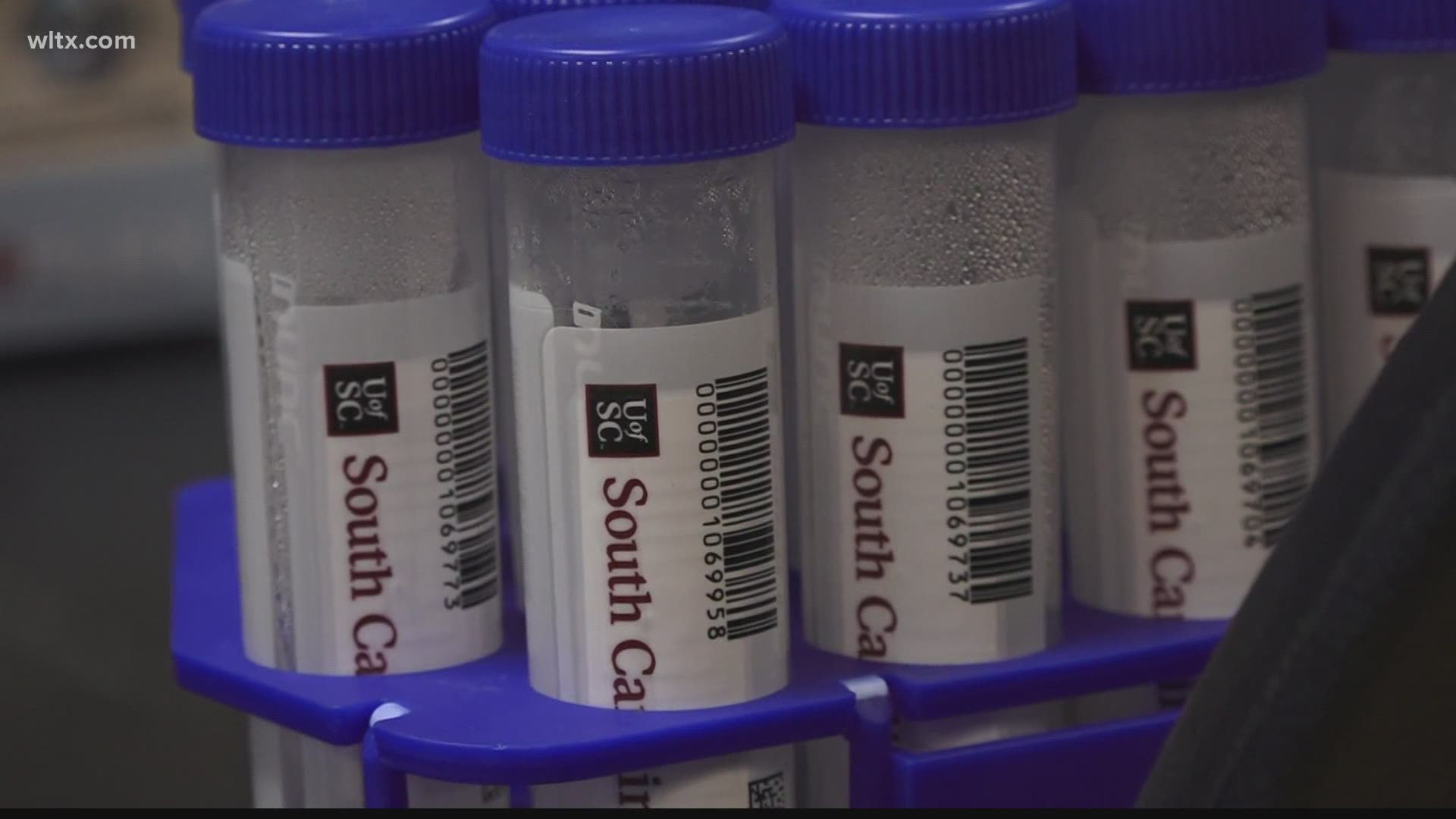COLUMBIA, S.C. — While there are different types of COVID-19 tests on the market, the nasopharyngeal swab test is the most common. Unfortunately, it can be uncomfortable to undergo.
Researchers with the University of South Carolina have developed a saliva-based test to make sure that the 30,000 plus students on campus will be able to be tested quickly and easily.
The SAFE (Saliva Assay Free Expedited) test can get results to students in less than 24 hours and is similar to what other universities around the nation are using.
Right now, USC has the capacity to test their students, faculty and staff. However, USC research assistant professor Dr. Carolyn Banister says they want to make the test available for the entire community in the future.
"We're really concerned about making sure the City of Columbia remains safe as we bring in 30,000 students," Dr. Banister says. "By testing our students, faculty and staff routinely, it will keep the incidents of COVID very low and will help everyone in the Columbia area."
In a statement, the officials with the S.C. Department of Health and Environmental Control (DHEC) said they hope to make use of saliva tests, as well, saying:
"As saliva tests become available for use at large-scale testing, DHEC plans to look at pursing them as a testing option for our mobile testing events held throughout the state.
Saliva testing is non-invasive and is collected by the individual being tested. Though someone may be required to monitor the collection to assure accurate technique, wide-scale saliva testing at testing clinics would reduce the number of healthcare workers required for specimen collection. In addition, the type and amount of personal protective equipment required to host a testing event would be significantly reduced."
"This is something to not be kept private," Banister says. "We need to disseminate this widely because this helps everybody be able to return to a normal life more quickly."

